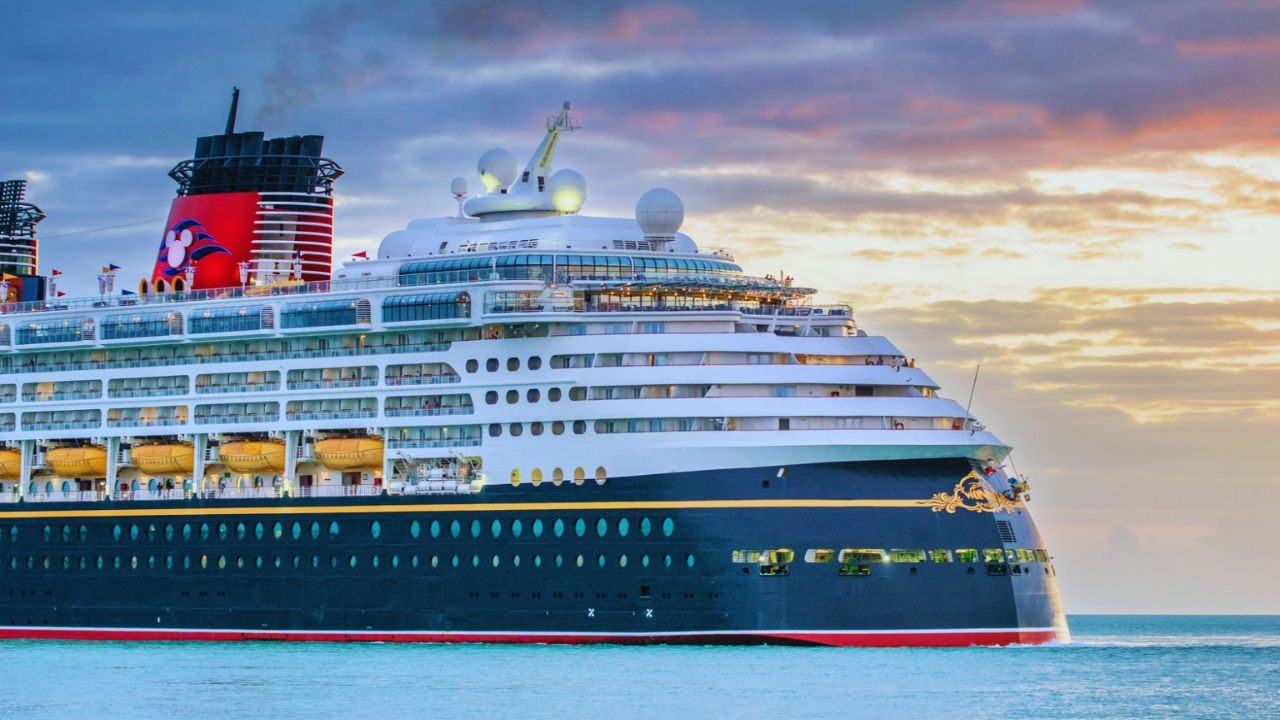If you want a clear roadmap to explore work opportunities in cruise lines, this guide shows where to look, what roles exist, and how to present yourself to recruiters.
You will learn how shipboard departments operate together and what responsibilities each team handles at sea.
The article also explains benefits, requirements, and practical steps that make applications stronger and interviews easier. By the end, you will know exactly how to move from research to a signed contract without guesswork.

Understanding Cruise Line Jobs and Responsibilities
Cruise ships function like floating cities, and each voyage depends on coordinated work across hospitality, marine operations, and entertainment.

Every department follows procedures that prioritize safety, guest satisfaction, and regulatory compliance in international waters.
Roles vary from guest-facing positions to technical specialists who keep navigation, power, and hotel services running.
Knowing how these functions connect helps you target roles that match your skills and long-term goals.
Guest Services and Hospitality Jobs on Cruise Lines
Guest services, housekeeping, food and beverage, and culinary teams deliver the core hotel experience on board.
These crews manage check-in, resolve service issues, prepare and serve meals, and maintain cabins to brand standards. Supervisors monitor sanitation, inventory, and service timing so dining rooms, buffets, and bars run smoothly.
Strong communication, attention to detail, and calm problem-solving are essential in high-volume environments.
Deck and Engine Operations Career Paths at Sea
Deck officers, ratings, and safety teams handle navigation, mooring, maintenance, and emergency response under the master’s direction.
Engine officers and technical staff run propulsion, electrical power, HVAC, water production, and waste systems that keep the vessel self-sufficient.
These roles follow strict procedures, watch schedules, and recordkeeping that align with maritime regulations and company manuals. Candidates usually progress through licensed or rating pathways with defined sea-time requirements.
Entertainment, Wellness, and Retail Roles on Cruise Ships
Entertainment teams include performers, musicians, technicians, and cruise staff who plan activities and stage shows.
Wellness and spa staff provide fitness classes, treatments, and consultations that reflect brand programs and health standards.
Retail, photo, and shore excursions specialists drive onboard revenue through sales, imagery, and destination experiences. These teams rely on energy, guest engagement, and measurable results that support the overall voyage experience.
Benefits of Cruise Line Employment You Should Consider
Cruise employment offers steady schedules, international travel, and included room and board that reduce daily living costs.

Contracts typically provide meals, uniform elements, laundry access, and medical care on board according to company policy.
Many brands promote internal mobility, structured training, and cross-department exposure that accelerate career growth.
These advantages make shipboard roles attractive for people seeking experience, savings, and global networking.
Compensation, Perks, and Included Living Arrangements
Base pay varies by role and seniority, and many guest-facing positions can receive gratuities according to brand rules. Room and board are typically included, which allows crew members to save a higher percentage of earnings.
Crew facilities often include gyms, lounges, internet access options, and support services run by the welfare team. Time off accrues through rest hours, shore leave opportunities, and vacation periods between contracts.
Training, Certifications, and Career Advancement at Sea
Companies invest in onboard and shoreside training for safety, service, leadership, and technical skills that meet brand standards.
Performance reviews and supervisor referrals often unlock promotions or cross-training into new departments. Sailors and hotel professionals gain international experience that transfers to shoreside hospitality, marine, and tourism roles.
Clear career ladders help staff visualize growth from entry levels to specialist or management ranks.
Global Travel, Cultural Exchange, and Professional Networks
Crew members visit multiple countries on a single contract and learn to work with colleagues from many nationalities.
Daily operations build resilience, adaptability, and intercultural communication that employers value worldwide. Networking across departments connects you with mentors, trainers, and recruiters who can recommend you for the next roles.
These relationships often lead to repeat contracts or transitions to flagship vessels and new itineraries.
Requirements for Job Opportunities at Cruise Lines
Cruise lines follow maritime regulations and corporate policies that shape eligibility across departments.

Most roles require a valid passport, minimum age, background screening, and medical clearance for shipboard service.
Depending on position and flag state, candidates may need safety certifications recognized under international standards.
Strong English communication is widely required because teams coordinate safety and service across mixed nationalities.
Legal Documents, Visas, and Background Screening for Crew
Applicants need an unexpired passport and may require seafarer visas or transit permits tied to embarkation ports.
Background checks verify identity and screen for disqualifying offenses according to company policy and local law.
Some countries require police certificates or additional documents before travel to the joining port. Keeping documents current avoids delays in contract issuance and travel logistics.
Medical Fitness, Safety Training, and Maritime Compliance Basics
Pre-employment medical exams confirm that candidates meet fitness standards for duty and shipboard living.
Many positions require basic safety training that covers personal survival techniques, fire prevention, first aid, and personal safety responsibilities.
Technical and emergency roles may need advanced certificates that align with their watchkeeping or firefighting duties. Companies provide recurrent drills and training so crews remain compliant and ready for real incidents.
Language Skills, Experience, and Soft Skills Needed on Board
Clear spoken English helps crew navigate safety briefings, radio calls, and guest interactions without confusion.
Guest-facing jobs favor hospitality or retail experience, while technical roles prioritize relevant trade, license, or sea-time backgrounds.
Recruiters look for teamwork, reliability, and stress tolerance because operations continue in all weather and time zones. Positive attitude and punctuality often matter as much as formal qualifications during probation.
Where to Find Cruise Line Jobs and Apply Confidently
Your best sources are official career portals for major cruise brands, reputable hiring partners, and maritime schools with placement support.

Company websites list shipboard and shoreside vacancies with requirements, locations, and contract details.
Recognized partners help screen applications, schedule interviews, and coordinate documents for multiple brands. Attending events and webinars gives you direct access to recruiters and realistic timelines.
Official Cruise Line Career Portals and Talent Communities
Brand career pages publish verified openings, explain recruiting steps, and let you create candidate profiles.
Alerts notify you when new roles match your function and language skills across fleets and itineraries.
Portals track application status, interview invitations, and contract issuance once selected by hiring teams. Using official channels protects you from fraudulent postings and ensures your data reaches decision-makers.
Reputable Hiring Partners and Maritime Training Networks
Licensed agencies and training partners pre-screen candidates and align them with brands based on experience and language.
These organizations coordinate interviews, medical scheduling, and document checks that meet company and port requirements.
Some partners offer pre-embarkation workshops that explain ship life, safety culture, and performance expectations. Verifying accreditation and feedback helps you choose partners that operate transparently and ethically.
Job Fairs, Auditions, and Industry Events for Cruise Careers
Cruise recruiters host open houses, entertainment auditions, and hospitality hiring days in major cities.
Events allow you to meet hiring managers, ask contract questions, and demonstrate guest service or performance abilities.
Maritime schools and tourism associations publicize calendars that include multi-brand recruiting sessions. Showing up prepared with documents and a polished resume can lead to same-day interview slots.
How to Get Hired for Cruise Line Jobs Step by Step
Strong applications highlight safety awareness, customer focus, and readiness for rotational schedules at sea.

Your resume should reflect measurable results, certifications, and language skills that match the posted requirements.
Interviews test problem-solving, teamwork, and professionalism in a multicultural, fast-paced environment. Final selection depends on references, medical fitness, and availability for the target boarding window.
Build a Cruise-Ready Resume and Profile That Stand Out
Tailor your resume to each posting by matching keywords and listing relevant certifications and languages.
Quantify achievements like guest satisfaction scores, upsell conversions, or technical uptime rates that show real impact.
Add short sections for safety drills, emergency duties, or equipment experience that align with shipboard operations. Keep formatting clean and export a PDF version that renders well on mobile and desktop.
Prepare for Cruise Interviews, Auditions, and Skills Tests
Expect scenario questions about handling complaints, working through fatigue, or supporting an emergency drill under supervision.
Entertainment candidates should bring show reels and be ready for live choreography, vocal ranges, or instrument pieces.
Technical applicants may face troubleshooting exercises and questions about watch schedules, log entries, and preventive maintenance. Practice concise answers that emphasize safety, teamwork, and service excellence under pressure.
Navigate Pre-Employment, Contracts, and Embarkation Logistics
Once selected, complete medical exams, background checks, and document verification within the timelines provided.
Review contracts for rank, salary components, leave structure, housing, and travel arrangements to the joining port.
Keep multiple copies of documents and scan everything to secure cloud storage for redundancy. Arrive early on embarkation day with uniform guidance followed, and contact numbers saved for your coordinator.
Benefits of Cruise Line Work Explained for Career Planners
Understanding total value helps you compare shipboard roles with shoreside jobs objectively.

Compensation includes base pay and may include tips or incentives according to brand policy. Included housing and meals reduce monthly expenses and improve savings potential over a contract.
Training, promotions, and global references add long-term value beyond the immediate paycheck.
Financial Planning, Savings, and Contract Cycles on Ships
Because living costs are covered, many crew set savings goals and automate transfers during contracts. Contract lengths vary by role, and off-rotation periods allow rest, study, or family time between sailings.
Overtime and performance incentives can increase earnings during peak seasons or special itineraries. Planning for taxes and currency transfers ensures smooth financial management across countries.
Well-Being, Safety Culture, and Life Onboard for Crew
Companies promote safety through daily briefings, drills, and clear reporting lines that protect crew and guests.
Welfare teams organize activities, counseling resources, and events that build community during long voyages. Crew must balance rest, nutrition, and hydration because ship operations run seven days a week.
Adopting routines early helps maintain energy and performance across the contract.
Professional Branding, References, and Next-Step Careers
Document your accomplishments with letters, certificates, and performance metrics reviewed by supervisors.
Maintain a professional profile that highlights ship classes, itineraries, and roles completed without incidents.
References from officers, managers, and trainers carry weight when you apply for higher ranks or new brands. These records make future transitions faster and negotiations clearer.
Conclusion
You now have a complete framework to explore work opportunities in cruise lines, from understanding departments to meeting requirements and acing interviews.
With focused preparation and consistent follow-through, you can turn research into a contract and launch a rewarding career at sea.











